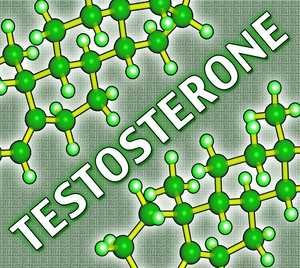Introduction
Testosterone replacement therapy (TRT) has become a pivotal treatment for men diagnosed with hypogonadism, a condition characterized by abnormally low levels of testosterone. Given the increasing prevalence of hypogonadism in American males and the consequent rise in TRT usage, understanding the long-term safety and efficacy of this therapy is crucial. This article delves into a systematic review and meta-analysis to provide a comprehensive overview of the long-term effects of TRT, aiming to guide both healthcare providers and patients in making informed decisions.
Methods of the Systematic Review and Meta-Analysis
The study incorporated a systematic review and meta-analysis of clinical trials and observational studies that assessed the long-term outcomes of TRT in American men with hypogonadism. Databases such as PubMed, Embase, and the Cochrane Library were searched for relevant studies published up to December 2022. The primary endpoints included changes in testosterone levels, improvements in symptoms associated with hypogonadism, and the incidence of adverse events.
Efficacy of Testosterone Replacement Therapy
The meta-analysis revealed that TRT significantly increased serum testosterone levels in hypogonadal men, restoring them to the normal range. This elevation in testosterone was associated with marked improvements in symptoms such as fatigue, reduced libido, and mood disturbances. Additionally, TRT was linked to enhancements in bone mineral density and muscle mass, which are critical for maintaining physical health and preventing osteoporosis in aging men.
Safety Profile of Long-Term TRT
One of the primary concerns regarding TRT is its long-term safety. The analysis showed that while TRT is generally well-tolerated, there is an increased risk of certain adverse events. Notably, there was a higher incidence of erythrocytosis, a condition characterized by an elevated red blood cell count, which necessitates regular monitoring. The data also suggested a potential increase in cardiovascular events, although the evidence was not conclusive due to varying study designs and patient populations.
Cardiovascular Risks Associated with TRT
The relationship between TRT and cardiovascular health remains a topic of intense debate. Some studies included in the meta-analysis reported a slight increase in cardiovascular events among men receiving TRT, while others found no significant association. This discrepancy underscores the need for further research to clarify the cardiovascular risks of long-term TRT, especially in men with pre-existing cardiovascular conditions.
Impact on Prostate Health
Another critical aspect of TRT safety is its impact on prostate health. The analysis indicated that TRT does not significantly increase the risk of prostate cancer in hypogonadal men. However, men with a history of prostate cancer or those at high risk should be monitored closely, as TRT can potentially exacerbate existing prostate conditions.
Psychological and Cognitive Effects
Beyond physical health, TRT has shown promising effects on psychological well-being and cognitive function. The review highlighted improvements in mood, energy levels, and cognitive performance among men on TRT. These findings suggest that TRT may play a role in enhancing the quality of life for men with hypogonadism.
Conclusion
The systematic review and meta-analysis provide valuable insights into the long-term safety and efficacy of testosterone replacement therapy in American men with hypogonadism. While TRT effectively restores testosterone levels and improves associated symptoms, its long-term safety profile warrants careful consideration. The potential risks of erythrocytosis, cardiovascular events, and impacts on prostate health necessitate regular monitoring and personalized treatment plans. As research continues to evolve, healthcare providers must stay informed to optimize the benefits of TRT while minimizing potential risks for their patients.
Future Directions
Future research should focus on larger, long-term studies to better understand the cardiovascular and prostate-related risks of TRT. Additionally, exploring the optimal dosing and duration of therapy could further enhance the safety and efficacy of TRT for American men with hypogonadism.
Contact Us Today For A Free Consultation

- TRT's Impact on Mental Health in American Men: Depression, Anxiety, and Cognition [Last Updated On: February 21st, 2025] [Originally Added On: February 21st, 2025]
- Economic Impact of Testosterone Replacement Therapy on U.S. Healthcare System [Last Updated On: March 16th, 2025] [Originally Added On: March 16th, 2025]
- TRT: Understanding Impacts on Prostate Health and Cancer Risk in American Men [Last Updated On: March 18th, 2025] [Originally Added On: March 18th, 2025]
- Testosterone Replacement Therapy: American Men's Experiences and Impact on Quality of Life [Last Updated On: March 18th, 2025] [Originally Added On: March 18th, 2025]
- Optimizing TRT: Diet, Exercise, and Holistic Health for American Men [Last Updated On: March 19th, 2025] [Originally Added On: March 19th, 2025]
- Navigating Insurance for Testosterone Replacement Therapy: A Guide for American Males [Last Updated On: March 19th, 2025] [Originally Added On: March 19th, 2025]
- Testosterone Replacement Therapy: Benefits, Risks, and Management for American Men [Last Updated On: March 19th, 2025] [Originally Added On: March 19th, 2025]
- Testosterone Replacement Therapy: Dosage, Administration, and Lifestyle Integration for American Males [Last Updated On: March 20th, 2025] [Originally Added On: March 20th, 2025]
- Enhancing TRT Outcomes with Alternative Therapies: A Holistic Approach for American Men [Last Updated On: March 20th, 2025] [Originally Added On: March 20th, 2025]
- Future of TRT: Innovations and Impacts on American Men's Health [Last Updated On: March 20th, 2025] [Originally Added On: March 20th, 2025]
- Testosterone Replacement Therapy: Benefits and Risks for Young American Men [Last Updated On: March 21st, 2025] [Originally Added On: March 21st, 2025]
- TRT Improves Sleep Quality in American Males with Hypogonadism: A Comprehensive Overview [Last Updated On: March 21st, 2025] [Originally Added On: March 21st, 2025]
- TRT: Managing Hypogonadism in American Males - Benefits, Risks, and Future Trends [Last Updated On: March 21st, 2025] [Originally Added On: March 21st, 2025]
- Testosterone Replacement Therapy: Combating Fatigue in American Men [Last Updated On: March 21st, 2025] [Originally Added On: March 21st, 2025]
- TRT Boosts Bone Health in American Males: Benefits, Evidence, and Lifestyle Integration [Last Updated On: March 21st, 2025] [Originally Added On: March 21st, 2025]
- Testosterone Replacement Therapy: Cultural Attitudes and Masculinity in American Men [Last Updated On: March 22nd, 2025] [Originally Added On: March 22nd, 2025]
- Testosterone Replacement Therapy: Managing Side Effects in American Males [Last Updated On: March 22nd, 2025] [Originally Added On: March 22nd, 2025]
- Testosterone Replacement Therapy: Enhancing Muscle Mass in American Men [Last Updated On: March 23rd, 2025] [Originally Added On: March 23rd, 2025]
- TRT's Impact on Immune Function: Benefits, Risks, and Monitoring in American Men [Last Updated On: March 23rd, 2025] [Originally Added On: March 23rd, 2025]
- Testosterone Replacement Therapy: Benefits, Risks, and Process for American Men [Last Updated On: March 23rd, 2025] [Originally Added On: March 23rd, 2025]
- Optimizing Testosterone Replacement Therapy: Monitoring, Adjustments, and Lifestyle Integration for American Males [Last Updated On: March 23rd, 2025] [Originally Added On: March 23rd, 2025]
- Testosterone Replacement Therapy: Impacts on Cardiovascular Health in American Men [Last Updated On: March 23rd, 2025] [Originally Added On: March 23rd, 2025]
- TRT in American Men: Balancing Benefits with Hair Loss Risks [Last Updated On: March 24th, 2025] [Originally Added On: March 24th, 2025]
- Testosterone Replacement Therapy: A Promising Treatment for Depression in American Males [Last Updated On: March 24th, 2025] [Originally Added On: March 24th, 2025]
- Testosterone Replacement Therapy: Benefits, Risks, and Management for Aging American Males [Last Updated On: March 24th, 2025] [Originally Added On: March 24th, 2025]
- TRT Enhances Mood and Vitality in American Males: A Comprehensive Overview [Last Updated On: March 24th, 2025] [Originally Added On: March 24th, 2025]
- TRT: Benefits and Risks for Vision Health in American Males [Last Updated On: March 24th, 2025] [Originally Added On: March 24th, 2025]
- TRT's Potential in Enhancing Cognitive Function in American Men with Hypogonadism [Last Updated On: March 24th, 2025] [Originally Added On: March 24th, 2025]
- TRT: Enhancing Joint Health in American Males Through Hormone Therapy [Last Updated On: March 25th, 2025] [Originally Added On: March 25th, 2025]
- TRT: Enhancing Weight Management in American Males with Low Testosterone [Last Updated On: March 25th, 2025] [Originally Added On: March 25th, 2025]
- Testosterone Replacement Therapy: Enhancing Cognitive Function in American Men [Last Updated On: March 25th, 2025] [Originally Added On: March 25th, 2025]
- TRT Impact on Male Fertility: Risks, Alternatives, and Management Strategies [Last Updated On: March 25th, 2025] [Originally Added On: March 25th, 2025]
- Testosterone Replacement Therapy: Benefits, Risks, and Realistic Expectations for Men [Last Updated On: March 25th, 2025] [Originally Added On: March 25th, 2025]
- Testosterone Replacement Therapy: Cost-Benefit Analysis and Accessibility in the U.S. [Last Updated On: March 25th, 2025] [Originally Added On: March 25th, 2025]
- TRT: Enhancing Stamina and Vitality in American Males [Last Updated On: March 25th, 2025] [Originally Added On: March 25th, 2025]
- TRT's Role in Enhancing Injury Recovery Among American Males: Benefits and Considerations [Last Updated On: March 26th, 2025] [Originally Added On: March 26th, 2025]
- TRT: A Promising Approach to Managing Chronic Pain in American Males [Last Updated On: March 26th, 2025] [Originally Added On: March 26th, 2025]
- TRT: A Promising Approach to Stress Management in American Males with Low Testosterone [Last Updated On: March 26th, 2025] [Originally Added On: March 26th, 2025]
- TRT's Impact on Kidney Health: Benefits, Risks, and Monitoring for American Males [Last Updated On: March 26th, 2025] [Originally Added On: March 26th, 2025]
- Testosterone Replacement Therapy: Benefits, Risks, and Holistic Approaches for Low Libido [Last Updated On: March 27th, 2025] [Originally Added On: March 27th, 2025]
- TRT and Liver Health: Risks, Monitoring, and Mitigation Strategies for American Men [Last Updated On: March 27th, 2025] [Originally Added On: March 27th, 2025]
- TRT's Impact on Diabetes: Benefits, Risks, and Personalized Management for American Men [Last Updated On: March 27th, 2025] [Originally Added On: March 27th, 2025]
- Testosterone Replacement Therapy: Benefits, Risks, and Management for American Men [Last Updated On: March 27th, 2025] [Originally Added On: March 27th, 2025]
- TRT: Enhancing Emotional Well-being in Men with Low Testosterone [Last Updated On: March 27th, 2025] [Originally Added On: March 27th, 2025]
- TRT Benefits for American Males: Enhancing Skin Health and Vitality [Last Updated On: March 27th, 2025] [Originally Added On: March 27th, 2025]
- TRT Boosts Confidence and Vitality in American Males: A Comprehensive Overview [Last Updated On: March 28th, 2025] [Originally Added On: March 28th, 2025]
- Testosterone Therapy: Benefits, Risks, and Side Effects for American Men [Last Updated On: March 28th, 2025] [Originally Added On: March 28th, 2025]
- TRT's Impact on Respiratory Health in American Men: Benefits and Considerations [Last Updated On: March 28th, 2025] [Originally Added On: March 28th, 2025]
- TRT's Impact on Digestive Health: Insights for American Men [Last Updated On: March 28th, 2025] [Originally Added On: March 28th, 2025]
- Testosterone Replacement Therapy: Enhancing Effects with Lifestyle Changes for American Males [Last Updated On: March 29th, 2025] [Originally Added On: March 29th, 2025]
- Choosing the Right TRT Clinic: A Guide for American Males [Last Updated On: March 29th, 2025] [Originally Added On: March 29th, 2025]
- TRT's Impact on Blood Pressure: Risks, Benefits, and Management for American Men [Last Updated On: March 29th, 2025] [Originally Added On: March 29th, 2025]
- TRT's Impact on Cholesterol: Essential Insights for American Males [Last Updated On: March 30th, 2025] [Originally Added On: March 30th, 2025]
- Testosterone Replacement Therapy: Restoring Vitality in American Males with Hypogonadism [Last Updated On: April 2nd, 2025] [Originally Added On: April 2nd, 2025]
- TRT's Impact on Thyroid Function: Monitoring and Management Strategies for American Men [Last Updated On: April 2nd, 2025] [Originally Added On: April 2nd, 2025]
- TRT's Impact on Blood Sugar: Insights for American Men Considering Therapy [Last Updated On: April 3rd, 2025] [Originally Added On: April 3rd, 2025]
- Navigating Testosterone Replacement Therapy: Understanding and Interpreting Lab Results [Last Updated On: April 7th, 2025] [Originally Added On: April 7th, 2025]
- Testosterone Replacement Therapy: Enhancing Athletic Performance Safely and Ethically [Last Updated On: April 7th, 2025] [Originally Added On: April 7th, 2025]
- Testosterone Replacement Therapy: Benefits, Allergic Risks, and Management Strategies [Last Updated On: April 8th, 2025] [Originally Added On: April 8th, 2025]
- TRT's Impact on Dental Health: Insights and Recommendations for American Men [Last Updated On: April 9th, 2025] [Originally Added On: April 9th, 2025]
- Maximizing TRT Benefits: Integrating Therapy with Lifestyle and Supplements for American Males [Last Updated On: April 9th, 2025] [Originally Added On: April 9th, 2025]
- TRT and Hearing Health: Considerations for American Males [Last Updated On: April 10th, 2025] [Originally Added On: April 10th, 2025]
- Legal Aspects of Testosterone Replacement Therapy for American Males [Last Updated On: April 10th, 2025] [Originally Added On: April 10th, 2025]
- Guide to Managing Testosterone Replacement Therapy While Traveling [Last Updated On: April 11th, 2025] [Originally Added On: April 11th, 2025]
- Testosterone Replacement Therapy: Enhancing Social Life and Health in American Males [Last Updated On: April 12th, 2025] [Originally Added On: April 12th, 2025]
- TRT's Impact on Eye Health: Benefits for American Men [Last Updated On: April 13th, 2025] [Originally Added On: April 13th, 2025]
- TRT's Impact on Male Fertility: Risks, Evidence, and Mitigation Strategies [Last Updated On: April 13th, 2025] [Originally Added On: April 13th, 2025]
- TRT's Impact on Nail Health: Benefits, Risks, and Management Strategies [Last Updated On: April 13th, 2025] [Originally Added On: April 13th, 2025]
- TRT's Impact on Hand Health in American Men: Strength, Dexterity, and Joints [Last Updated On: April 15th, 2025] [Originally Added On: April 15th, 2025]
- Exploring Social Implications of Testosterone Replacement Therapy in American Males [Last Updated On: April 16th, 2025] [Originally Added On: April 16th, 2025]
- TRT: Enhancing Work Performance in American Males - Benefits and Risks [Last Updated On: April 16th, 2025] [Originally Added On: April 16th, 2025]
- Testosterone Replacement Therapy: Enhancing Artistic Expression in American Males [Last Updated On: April 16th, 2025] [Originally Added On: April 16th, 2025]
- TRT's Impact on Neck Health: Considerations for American Men [Last Updated On: April 16th, 2025] [Originally Added On: April 16th, 2025]
- TRT: Enhancing Foot Health in American Males Through Testosterone Therapy [Last Updated On: April 17th, 2025] [Originally Added On: April 17th, 2025]
- Ethical Considerations in Testosterone Replacement Therapy for American Men [Last Updated On: April 19th, 2025] [Originally Added On: April 19th, 2025]
- TRT Impact on Chest Health: Benefits, Risks, and Management in American Men [Last Updated On: April 19th, 2025] [Originally Added On: April 19th, 2025]
- Testosterone Replacement Therapy: Psychological Benefits and Risks for American Men [Last Updated On: April 19th, 2025] [Originally Added On: April 19th, 2025]
- TRT: Enhancing Back Health in American Males with Low Testosterone [Last Updated On: April 20th, 2025] [Originally Added On: April 20th, 2025]
- TRT Enhances Glycemic Control in American Men with Type 2 Diabetes: Cohort Study [Last Updated On: April 21st, 2025] [Originally Added On: April 21st, 2025]
- Testosterone Replacement Therapy: Enhancing Male Health and Addressing Low Testosterone in American Men [Last Updated On: April 21st, 2025] [Originally Added On: April 21st, 2025]
Word Count: 603





















